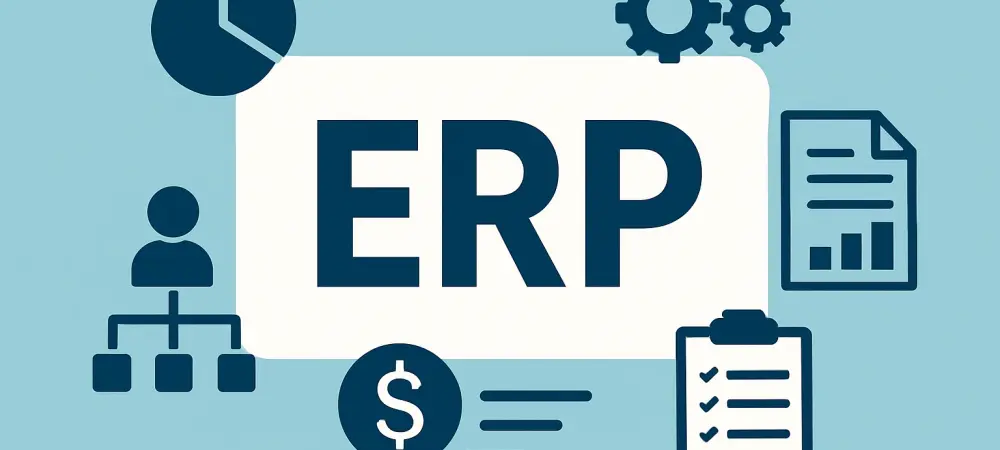In the rapidly evolving landscape of business technology, integrating Artificial Intelligence (AI) with Enterprise Resource Planning (ERP) systems marks a significant paradigm shift. This fusion promises an overhaul of traditional business processes, offering enhanced decision-making capabilities and streamlined operations. As businesses face mounting pressure to optimize efficiency and profitability, the potential of AI-ERP integration becomes an increasingly pertinent solution. This review delves into the core mechanics, recent developments, and real-world applications of this transformative technology.
Understanding AI and ERP Integration
The integration of AI and ERP systems combines predictive analytics, machine learning, and automation to breathe new life into enterprise software solutions. AI-infused ERP platforms can rapidly process massive datasets, offering businesses insights that were previously unattainable. The emergence of AI-ERP solutions gains traction across industries due to their ability to drive strategic decisions while eliminating inefficiencies. This convergence signifies a departure from static data management, aligning with broader digital transformation trends.
A deeper look into AI and ERP illustrates the profound impact these technologies have in the contemporary business arena. As industries globally embrace digital transformation, AI-ERP integration stands out as a critical innovator. Its relevance and growing importance are most evident as businesses seek agile, data-driven ways to enhance operational efficiency and competitiveness.
Key Characteristics and Elements of AI-ERP Integration
AI-Driven Data Analytics
Central to AI-ERP integration is the capability of AI-driven data analytics. AI algorithms within ERP systems facilitate advanced data processing, allowing for more precise analysis and forecasting. This integration harnesses the power of big data, enabling organizations to make informed decisions based on current trends and predictive insights. As a result, businesses can optimize operations, reduce costs, and identify new opportunities with greater accuracy and speed.
Moreover, leveraging AI analytics significantly boosts the decision-making processes within organizations. AI models analyze complex datasets in real time, delivering actionable insights that guide strategic business choices. This ability to predict market changes or consumer behavior places companies using AI-ERP integration at a substantial advantage, fostering a culture of proactive rather than reactive planning.
Intelligent Process Automation
AI-ERP integration also introduces intelligent process automation into business operations. This feature enables automated handling of repetitive tasks, freeing employees to focus on strategic initiatives. The implementation of robotic process automation (RPA) reduces errors and enhances efficiency by seamlessly integrating into existing workflows, ultimately driving business growth. Businesses benefit from the technical prowess of intelligent automation by achieving streamlined operations with minimal manual intervention. This aspect of AI-ERP integration ensures that enterprises can scale their operations without proportionally increasing staff, thus optimizing resource allocation. Additionally, real-world applications demonstrate improved operational performance and significant cost savings.
Advancements in AI-ERP Integration
Recent years have seen groundbreaking advancements in AI-ERP integration, driven by shifts in industry demands and consumer expectations. These developments are largely shaped by the need for faster, more adaptable systems that can keep pace with rapid market changes. AI-ERP solutions are at the forefront of meeting these demands, integrating cutting-edge AI models to anticipate and respond to evolving business requirements.
Innovations in AI-ERP technology reflect a dynamic shift toward more agile and efficient enterprise systems. Industry behaviors increasingly favor a seamless merging of AI with traditional ERP functionalities to support adaptive business models. As technology progresses, AI-ERP systems continue to evolve, enhancing data processing capabilities and offering new levels of operational insight.
Practical Applications and Case Studies
Industries ranging from manufacturing to retail now utilize AI-ERP solutions to streamline operations and boost profitability. In manufacturing, companies implement AI-enhanced ERP systems for inventory management, quality control, and supply chain optimization. These solutions empower manufacturers to anticipate demand, adjust production schedules accordingly, and reduce waste, ensuring optimal resource use.
In the retail sector, AI-ERP systems provide insights into consumer behavior, enabling personalized customer experiences and improved service delivery. Businesses leverage AI capabilities to maintain competitive edges and implement strategies that drive customer retention and sales growth. These real-world applications underscore the transformative potential of AI-ERP integration, showcasing enhanced business processes and increased operation efficacy.
Addressing Challenges and Overcoming Limitations
Despite its promising prospects, AI-ERP integration faces several challenges, notably technical constraints and regulatory considerations. Issues such as data privacy, system compatibility, and cost barriers pose significant hurdles. However, concerted efforts by technology providers continue to address these challenges through innovative solutions and robust regulatory compliance measures.
Moreover, ongoing development efforts aim to overcome existing limitations, paving the way for broader adoption of AI-ERP technologies. Companies are increasingly investing in R&D to enhance system interoperability and reduce implementation costs, ensuring that AI-ERP technology becomes accessible to a wider range of businesses seeking transformation.
The Future of AI-ERP Integration
Looking ahead, AI-ERP integration is poised to achieve transformative breakthroughs that will redefine industry norms. As AI technology advances, its incorporation within ERP systems is expected to expand in terms of functionality, offering businesses unprecedented levels of connectedness and efficiency. This evolution holds promise for further optimized supply chains, enhanced predictive capabilities, and simplified global operations. The potential impact of AI-ERP integration extends beyond individual businesses, promising broader societal and industry-wide advancements. Companies that effectively integrate these technologies will likely shape future business landscapes, setting new standards for operational excellence and innovation.
Final Thoughts and Assessment
Reflecting on AI and ERP integration, the current capabilities of these technologies reveal a compelling picture of enhanced organizational performance and efficiency. Businesses employing AI-ERP solutions can expect to enjoy data-driven decision-making and improved process automation, crucial for navigating today’s competitive marketplace. While challenges persist, relentless technological advancements and strategic adaptation hold promise for a resilient and prosperous future.

